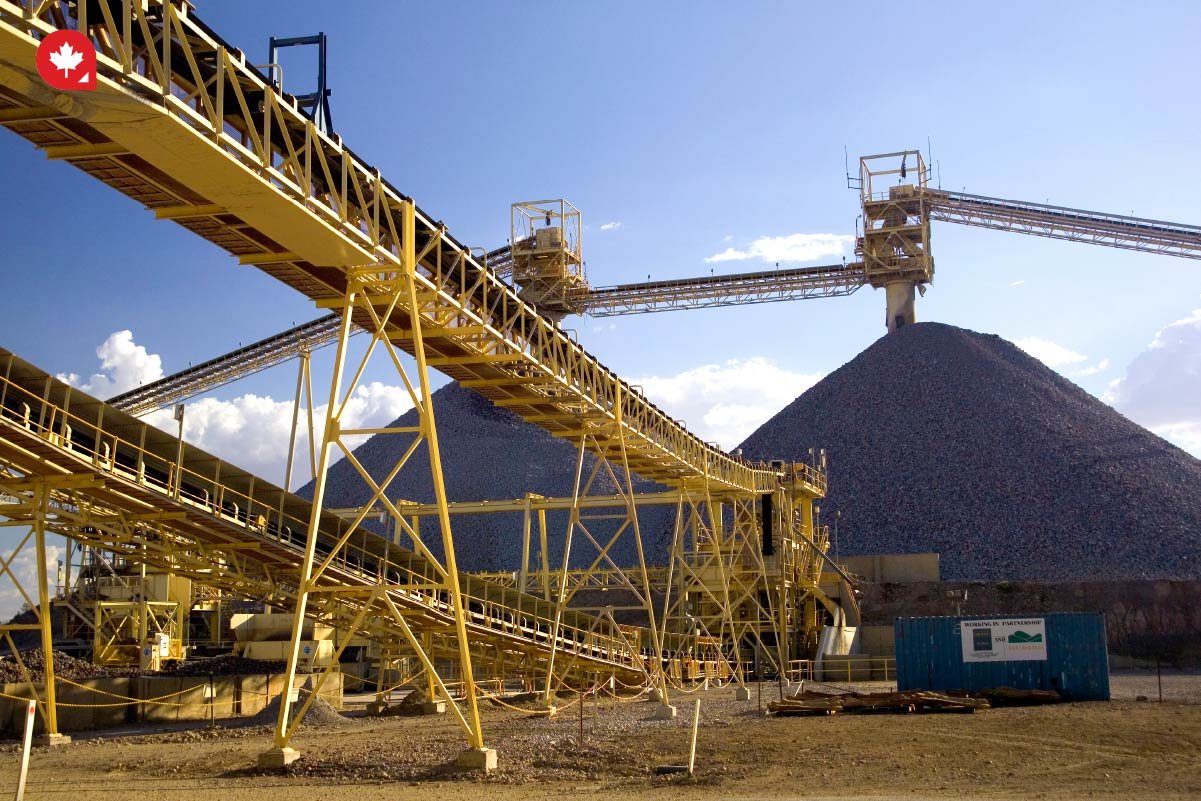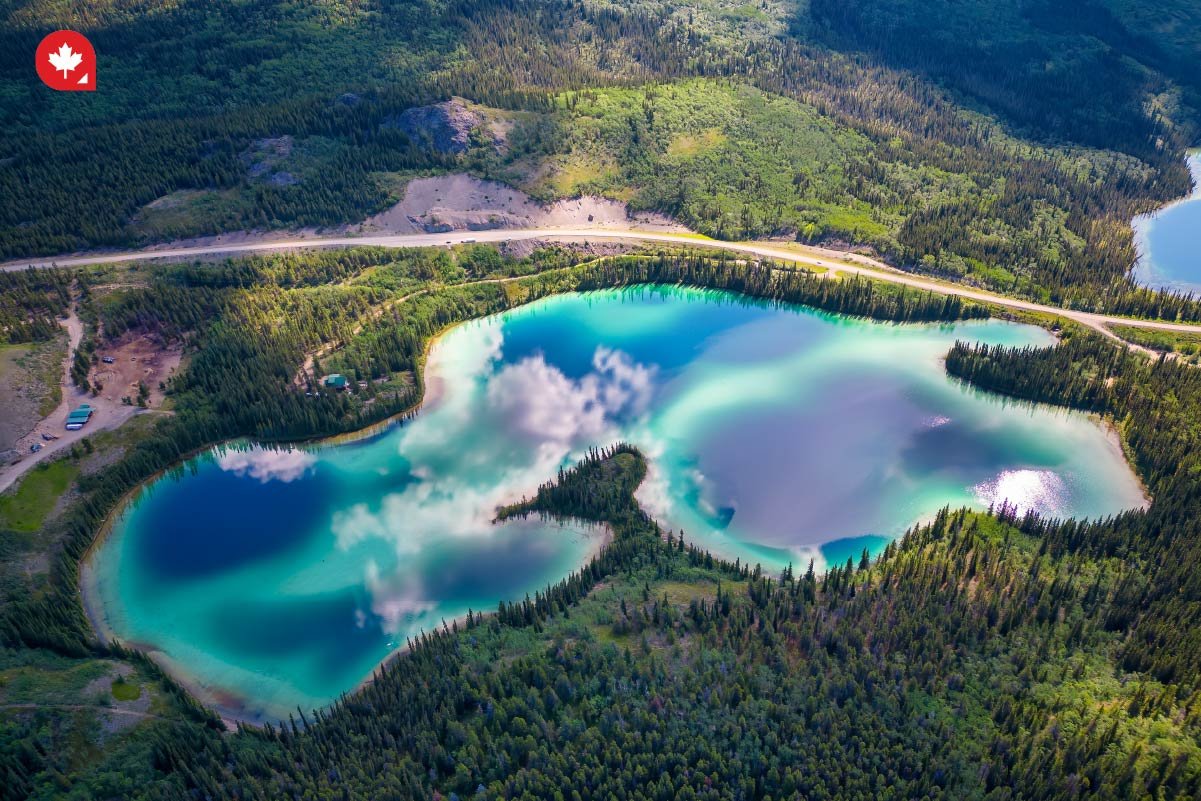With its rich mineral resources and robust mining sector, the Yukon presents many employment opportunities for individuals seeking rewarding careers. In our guide, we will explore the top mining job prospects available to immigrants in the Yukon, highlighting key roles and responsibilities within the industry.
From mining engineers to heavy equipment operators, immigrants can leverage their skills and expertise to play a vital role in extracting and processing valuable minerals in the region.
Dive into the lucrative mining job prospects in the Yukon, providing immigrants with opportunities to contribute their skills and expertise to the flourishing industry in Canada's northern territory!
Mining in Yukon

Mining in Yukon dates back to the Klondike Gold Rush of the late 19th century, which attracted thousands of prospectors searching for fortune in the region's rivers and creeks. Today, Yukon remains a significant player in the mining industry, known for its rich mineral deposits, including
- Gold,
- Copper,
- Petroleum,
- Natural gas,
- Silver,
- Zinc, and
- Lead.
The territory boasts some of the world's most productive mines, ranging from small-scale placer mining to large-scale underground and open-pit operations. Yukon's mineral wealth is complemented by its stunning natural landscapes, including rugged mountains, pristine rivers, and vast wilderness areas, making it an attractive destination for mining enthusiasts and outdoor adventurers.
Yukon's mining industry is characterized by its commitment to environmental stewardship and sustainable practices, with stringent regulations to minimize the impact of mining activities on the surrounding ecosystem.
10 of The Most In-Demand Mining Jobs in the Yukon for Immigrants

Here are ten of the most in-demand mining jobs in the Yukon for immigrants, highlighting the roles, responsibilities, qualifications, and National Occupational Classification (NOC) codes and annual average salaries from Canada’s Job Bank.
Mining Engineer
NOC code: 21330
Annual Average Salary in Yukon: 126,912.34 CAD.
Mining engineers are crucial in planning, designing, and overseeing mining operations to ensure efficiency, safety, and environmental compliance. They are responsible for developing mining plans, designing extraction methods, and optimizing production processes.
A degree in mining engineering or a related field and strong analytical and problem-solving skills are typically required for this role. Immigrants with experience in engineering and a passion for mining can excel in this dynamic and challenging profession.
Qualifications
- A bachelor's degree in mining engineering or in a related engineering discipline,
- Master's degree or doctorate in a related engineering discipline,
- Licensing by a provincial or territorial association of professional engineers, and
- Register after graduating from an accredited educational program, three or four years of supervised work experience in engineering, and fulfilling a professional practice examination.
Geologist
NOC code: 21102
Annual Average Salary in Yukon: 136,656.68 CAD.
Geologists are instrumental in identifying and assessing mineral deposits, conducting geological surveys, and analyzing data to determine the feasibility of mining projects. They play a key role in exploration and prospecting activities, utilizing advanced techniques and technologies to locate valuable mineral resources.
A geology or earth sciences degree, with field experience and expertise in geological mapping and analysis, is essential for aspiring geologists. Immigrants with a geoscience background and a keen eye for detail can thrive in this exciting field.
Qualifications
- University degree in geology, geochemistry, geophysics, or a related discipline,
- Master's or doctoral degree in geophysics, physics, mathematics, or engineering,
- To register with the territorial professional association, have several years of supervised work experience and pass a professional practice examination, and
- If you’re an Oceanographer, a university degree in science, mathematics, statistics or engineering is required.
Heavy Equipment Operator
NOC code: 73400
Annual Average Salary in Yukon: 89,753.96 CAD.
Heavy equipment operators operate and maintain machinery such as excavators, bulldozers, and haul trucks to extract and transport materials in mining operations. They must possess excellent hand-eye coordination, spatial awareness, and a strong understanding of equipment safety protocols.
While formal training and certification are often required for this role, immigrants with prior experience operating heavy machinery can quickly adapt to the job's demands and contribute to the efficiency of mining operations.
Qualifications
- Relevant amount of secondary school education,
- Complete 1 or 2-year apprenticeship program, on-the-job training or secondary school, college or industry courses in heavy equipment operating,
- Trade certification for heavy equipment operator (excavator, tractor-loader-backhoe, dozer),
- Internal company certification (if required by your Yukon employer), and
- Receive a Red Seal endorsement after completing the interprovincial Red Seal examination.
Driller
NOC code: 83101
Annual Average Salary in Yukon: 105,135.03 CAD.
Drillers are tasked with operating drilling equipment to extract core samples and assess the geological composition of mining sites. They play a critical role in exploration, geotechnical testing, and resource evaluation, providing valuable data to inform decision-making processes.
A combination of technical skills, physical stamina, and attention to detail is essential for success. Immigrants with experience in drilling operations and a background in engineering or geology can excel as drillers in the Yukon's mining industry.
Qualifications
- Complete secondary school,
- 3 to 6 months of official on-the-job training, college or petroleum industry-approved training courses, or
- 4 or more years of subordinate rig crew work experience,
- College diploma in drilling,
- Several years of offshore work experience,
- 3 to 6 months of formal on-the-job training and several years of experience in drilling and servicing rigs, subordinate logging, and testing positions,
- For open hole well logging, completion of a college program in electronics or engineering technology,
- For well perforation services, receive a provincial blaster's license and seismic blaster and oil well blaster certification,
- Trade certification for rig technician,
- Red Seal endorsement for qualified rig technicians who completed the interprovincial Red Seal examination, and
- Certificates in first aid, blowout prevention, hydrogen sulfide awareness, workplace hazardous materials information system (WHMIS), well control, special oil well operator (boiler) certificate, and transportation of dangerous goods (TDG).
Mechanical Engineer
NOC code: 21301
Annual Average Salary in Yukon: 113,726.87 CAD.
Mechanical engineers are responsible for designing, maintaining, and troubleshooting machinery and equipment used in mining operations. They ensure mining equipment functions efficiently and safely, conducting inspections, repairs, and upgrades as needed.
A degree in mechanical engineering or a related field, coupled with strong technical skills and mining equipment knowledge, is essential for this role. Immigrants with a background in mechanical engineering and a passion for problem-solving can significantly contribute to the success of mining projects in the Yukon.
Qualifications
- Bachelor's degree in mechanical engineering or related engineering discipline,
- Master's degree or doctorate in a related engineering discipline,
- Licensed as a provincial or territorial association of professional engineers, and
- Get registered after graduating from an accredited educational program, 3 or 4 years of supervised engineering work experience, and passing a professional practice exam.
Electrical Engineer
NOC code: 21310
Annual Average Salary in Yukon: 122,590.26 CAD.
Electrical engineers are vital in designing, installing, and maintaining electrical systems and equipment in mining facilities. They ensure the safe and reliable operation of electrical infrastructure, including power distribution, lighting, and control systems.
A degree in electrical engineering or a related field, along with expertise in electrical design and project management, is required for this role. Immigrants with experience in electrical engineering and a commitment to safety and efficiency can thrive in the dynamic environment of mining operations.
Qualifications
- Bachelor's degree in electrical or electronics engineering or related engineering discipline,
- Master's or doctoral degree in a related engineering discipline,
- License from Yukon's Territorial Association of Professional Engineers,
- 3 or 4 years of supervised work experience in engineering and passing a professional practice examination, and
- Leadership in Energy and Environmental Design (LEED) certification from the Canada Green Building Council.
Mine Surveyor
NOC code: 22101
Annual Average Salary in Yukon: 97,520.81 CAD.
Mine surveyors conduct surveys and map mining areas to determine boundaries, volumes, and potential hazards. They utilize advanced surveying equipment and techniques to collect accurate data and create detailed underground and surface mining site maps.
A degree in surveying or geomatics, along with experience in land surveying and mapping, is typically required for this role. Immigrants with strong spatial awareness and technical proficiency can excel as mine surveyors, contributing to the safe and efficient operation of mining projects in the Yukon.
Qualifications
- Complete a 2 or 3 year college program for mine surveyors working in geological or mineral technology,
- 2 or 3 year college program in electronics technology for geophysicist technology,
- Certification in geological and mineral technology or a related field,
- Membership in the regulatory body for professional technologists, and
- 2 years of supervised work experience before certification.
Environmental Engineer
NOC code: 21300
Annual Average Salary in Yukon: 112,383.07 CAD.
Environmental engineers are critical in managing environmental compliance and sustainability initiatives in mining operations. They develop and implement strategies to minimize the impact of mining activities on the environment, including air and water quality monitoring, waste management, and reclamation planning.
A degree in environmental engineering or a related field, coupled with expertise in environmental regulations and risk assessment, is essential for this role. Immigrants with a passion for environmental stewardship and a background in engineering or environmental science can contribute to the responsible development of mining projects in the Yukon.
Qualifications
- Bachelor's degree in civil engineering or related engineering discipline,
- Master's degree or doctorate in a related engineering discipline,
- Licensed by a provincial or territorial association of professional engineers,
- Register after graduating from an accredited educational program, passing a professional practice exam, and 3 or 4 years of supervised work experience in engineering, and
- LEED certification from the Canada Green Building Council.
Safety Coordinator
NOC code: 22232
Annual Average Salary in Yukon: 91,019.01 CAD.
Safety coordinators are responsible for implementing and overseeing safety protocols and procedures to ensure a safe working environment for miners. They conduct safety inspections, provide training on safety practices, and investigate accidents and incidents to identify and address potential hazards.
A background in occupational health and safety, relevant certifications, and experience in the mining industry are typically required for this role. Immigrants committed to safety and a strong understanding of occupational health principles can play a vital role in promoting a safety culture in Yukon's mining sector.
Qualifications
- Bachelor's degree or college diploma in occupational health and safety,
- Board of Canadian Registered Safety Professionals (BCRSP) certification for Occupational health and safety officers.
Laboratory Technician
NOC code: 33101
Annual Average Salary in Yukon: 95,303.92 CAD.
Laboratory technicians analyze samples and conduct tests to assess the quality and composition of minerals extracted from mining sites. They utilize specialized equipment and techniques to analyze ore samples, identify mineral concentrations, and ensure compliance with quality standards.
A degree or diploma in chemistry, geology, or a related field, along with experience in laboratory testing and analysis, is typically required for this role. Immigrants with a background in science and meticulous attention to detail can excel as laboratory technicians, supporting the efficient operation of mining projects in the Yukon.
Qualifications
- 2 or 3 year college program in medical laboratory technology,
- Canadian Society for Medical Laboratory Science certificate,
- Completion of a combined laboratory X-ray technology program, and
- University science degree for specialized medical laboratory technologists.
How Can I Work in Yukon’s Mining Industry

To work in Yukon’s mining industry as an immigrant, you must obtain a Canadian work permit. Learn more about the types of work permits you can apply for in Canada.
FAQs
What is The Current Minimum Wage in The Yukon?
The current minimum wage in the Yukon is 16.77 CAD per hour based on information from the Retail Council of Canada, providing fair compensation for workers across various industries.
What is The Unemployment Rate in The Yukon?
The unemployment rate in the Yukon stands at 5.5% based on information from the Canadian government. This figure reflects the territory's economic conditions and job market dynamics, ensuring that immigrants have a high probability of securing employment in Yukon.
What is Life Like for Immigrants in The Yukon?
Life for immigrants in the Yukon is characterized by a welcoming and inclusive community, abundant outdoor recreational opportunities, and access to essential services and amenities.




